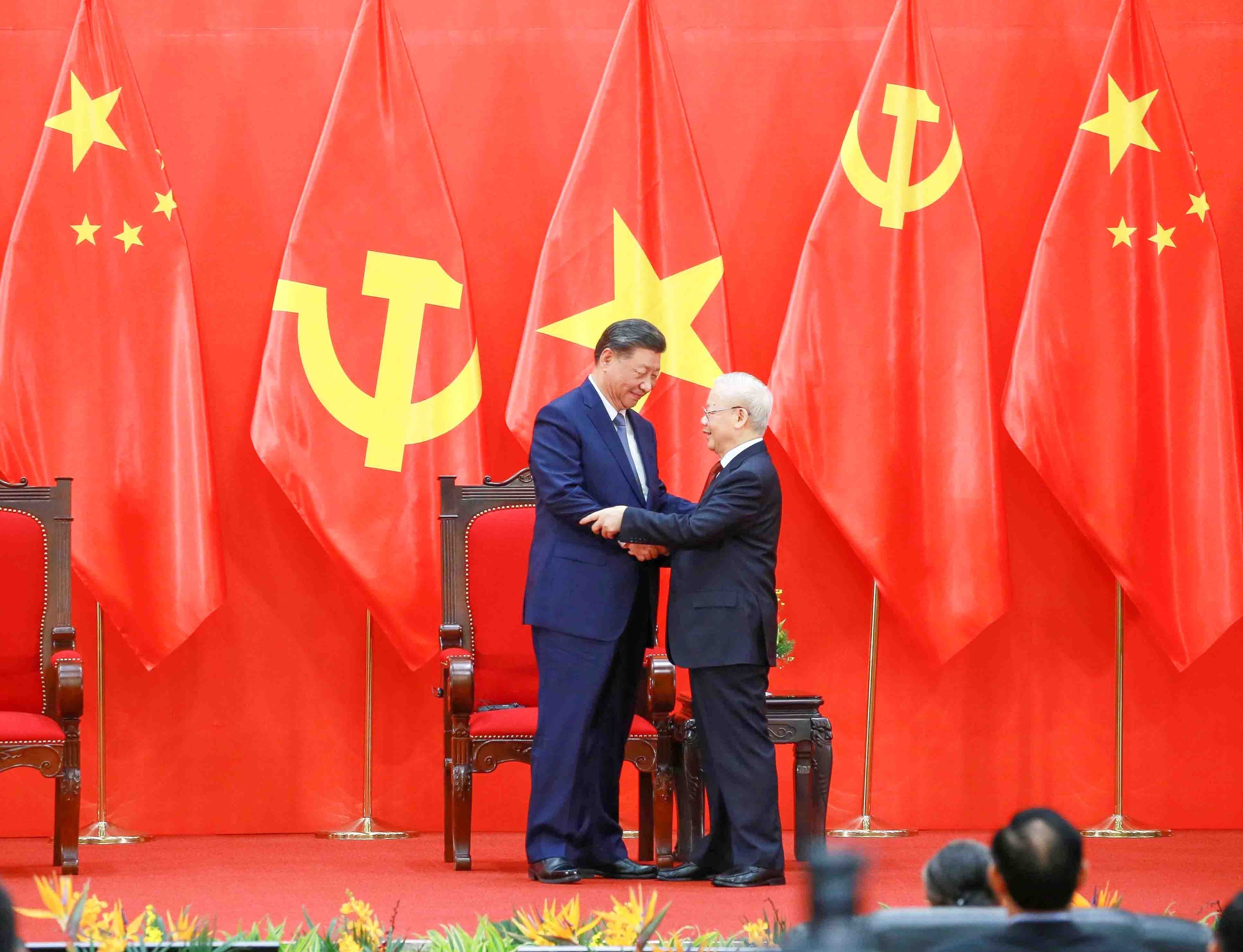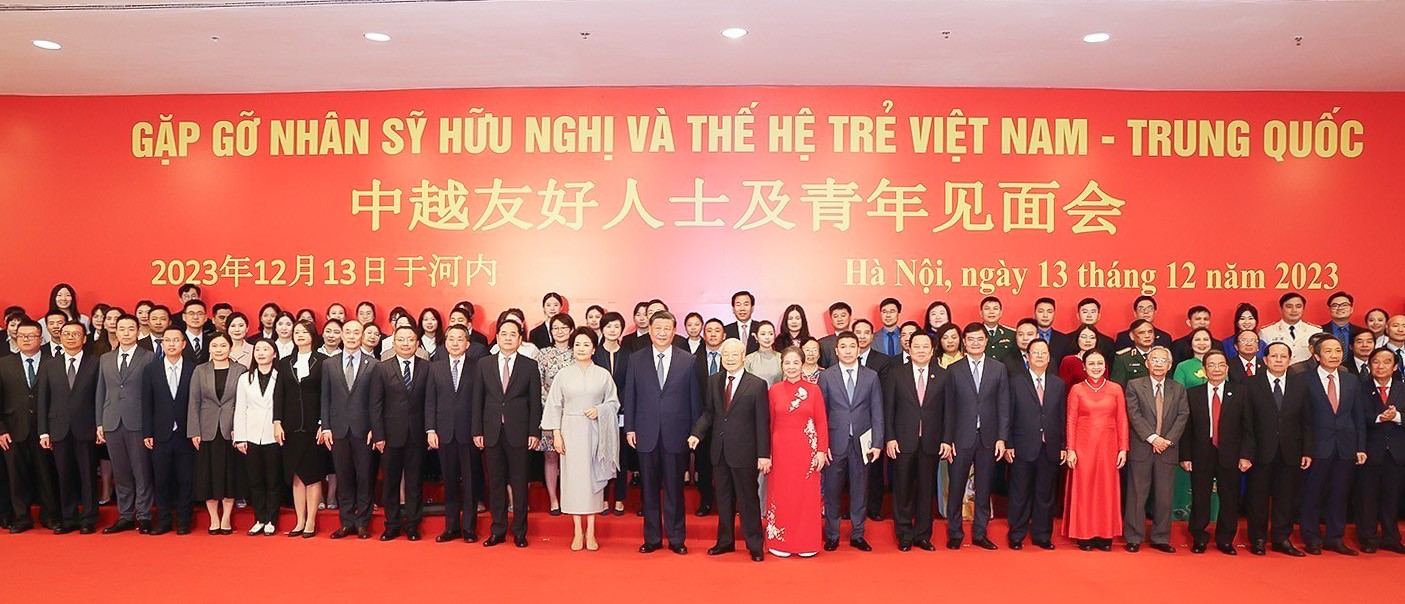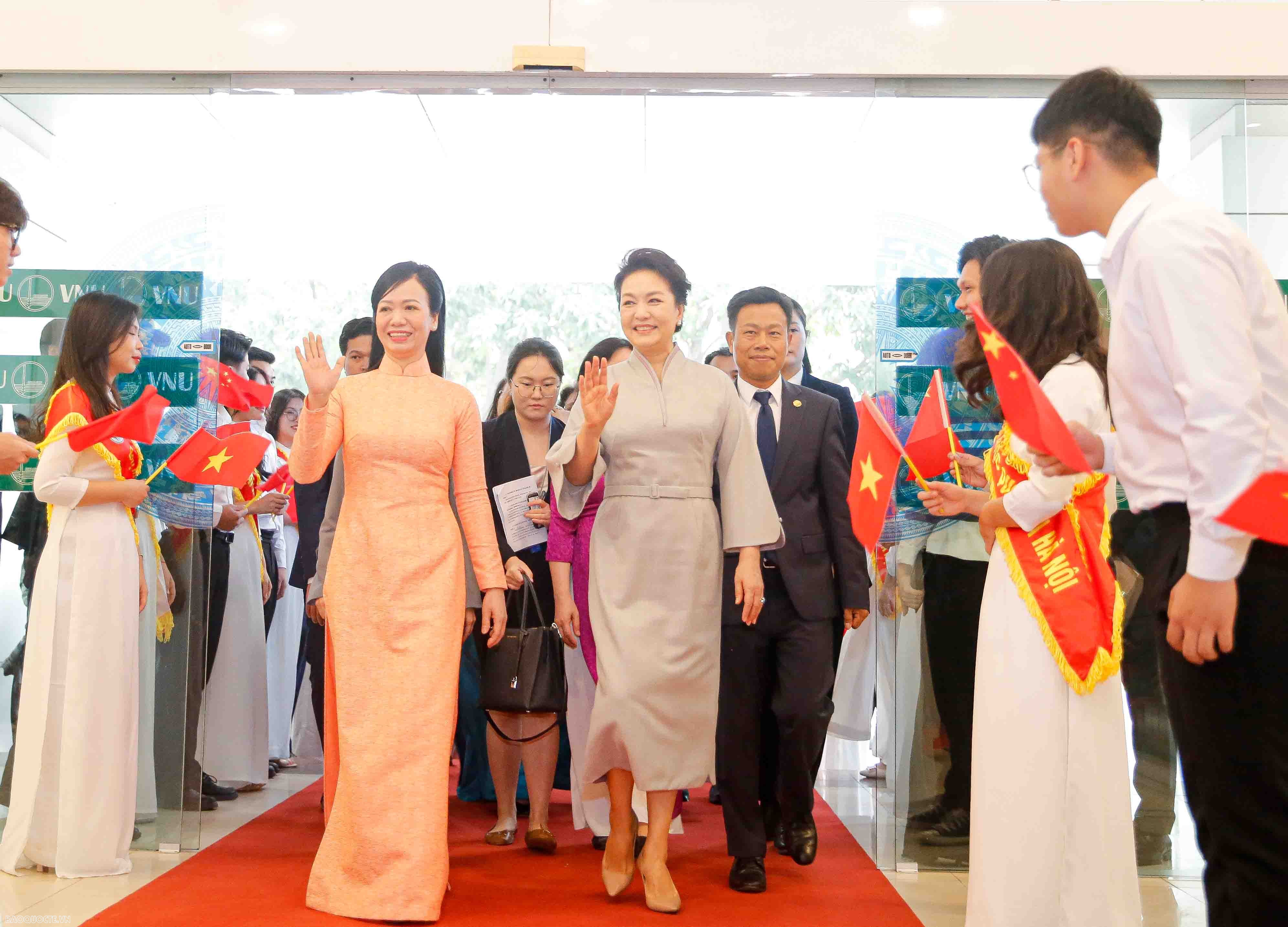
President Xi Jinping's Vietnam visit vital beyond bilateral ties: Chinese media
Latest
 |
| General Secretary Nguyen Phu Trong and General Secretary and President of China Xi Jinping at the meeting in Hanoi, on December 13, 2023. (Photo:WVR/Nguyen Hong) |
Vietnam considers the visit to be one of the most important in a year full of foreign engagements, one that matters much beyond China-Vietnam relations. As an immediate neighbor of China with immense cultural and political similarities, Vietnam has always considered its ties with China the most important and consequential to its security and development, albeit its independent foreign policy is aimed at "diversifying" and strengthening its relations with other countries while remaining "self-reliant" and "a friend to all".
For Vietnam, China is not only its largest neighbor, its traditional friend, a key partner that shares a similar political system, the largest trading partner, the fourth-largest source of foreign direct investment (in 2023), a key development partner with very similar goals and aspirations, and an increasingly important source of modern technologies.
Vietnam recognizes China's growing global role for peace, security and development, as well as China's contribution to global growth and post-pandemic economic recovery. In fact, China's vision of a "peaceful, secure, prosperous, beautiful, amicable and harmonious Asian home" is compatible with those of Vietnam and the rest of Asia.
 |
| On December 13, 2023, General Secretary Nguyen Phu Trong and Spouse, General Secretary and President of China Xi Jinping and Spouse at the meeting with young people. (Photo:WVR/Nguyen Hong) |
President Xi's visit to Vietnam is, therefore, an important opportunity to foster political trust and confidence between the two countries' leaderships, which is a key priority for Vietnam. In the past three years, the two top leaders of the two countries' ruling parties have had four conversations on the phone, and Nguyen Phu Trong has visited China.
Besides, Vietnamese President Vo Van Thuong participated in the third Belt and Road Forum for International Cooperation in Beijing in October, and Vietnamese Prime Minister Pham Minh Chinh has been frequently discussing bilateral and multilateral issues with the previous and incumbent Chinese premiers, and immediately resumed official and working visits to China after the COVID-19 pandemic was controlled.
Yet against the backdrop of heightening geopolitical rivalry, Vietnam is keen to demonstrate its independent, proactive and pragmatic foreign policy guided by its national interest. It also wants to assure its northern neighbor that it is not choosing sides in any competition.
Strengthening economic and trade relations with China is of high priority for Vietnam. The massive bilateral trade volume ($175 billion in 2022 according to Vietnam's data) serves both countries' interests. People-to-people exchanges and cultural ties have always been a stabilizing factor in Vietnam-China relations, and an important aspect of the comprehensive cooperative strategic partnership which Vietnam will surely try to deepen.
 |
| On December 13, Phan Thi Thanh Tam, Spouse of Vietnamese President Vo Van Thuong, and Prof. Peng Liyuan, Spouse of General Secretary of the Communist Party of China Central Committee and President of China Xi Jinping were welcomed by students of the Vietnam National University-Hanoi (VNU). (Photo: WVR/Nguyen Hong) |
Another major priority for Vietnam is to find amicable ways of managing the South China Sea disputes in accordance with international law. The disputes affect not only littoral states but also other states. And the ongoing hostilities in some regions are a reminder that a conflict is much easier to start than to stop, and that all parties will be losers in the long run.
Therefore, Vietnam will continue to insist that all countries abide by the principles of the United Nations Charter, observe international law, fulfil their responsibility to maintain peace and stability, and refrain from threatening to use or using force to settle disputes.
For China, on the other hand, Vietnam is the fourth-largest trading partner country, and the largest trading partner among the members of the Association of Southeast Asian Nations, which collectively is China's largest trading partner. Moreover, Vietnam is an important gateway to ASEAN, which is of key priority to China as part of its neighborhood policy and the Belt and Road Initiative.
Access to the ASEAN market is also critical to China's dual circulation development paradigm, which is aimed at lessening China's over-dependence on certain global markets.
Furthermore, Vietnam is strategically more important for China to realize its global vision and goals. Its ties with Vietnam is perhaps the most demonstrative of China's new outlook on foreign policy, including neighborhood policy, in the new era, and China's actual approach to realizing its vision of building a community with a shared future for mankind.
President Xi's first visit to Vietnam in six years could be a good opportunity for the two countries to demonstrate their commitment to be "good neighbors", "good friends", "good comrades" and "good partners". If the two countries succeed in doing so, they could set a global example of good neighborliness, effective South-South cooperation, and comprehensive and mutually beneficial relationship "featuring equality, openness and cooperation".
For the above reasons, both Vietnam and China will ensure President Xi's visit to Vietnam is fruitful, because the outcome of the visit will influence not only bilateral ties for years to come but also China's neighborhood policy and possibly Beijing's broader strategic goals.
The Author is Vice-President of the Diplomatic Academy of Vietnam. The article was published by China Daily, December 13, 2023.













